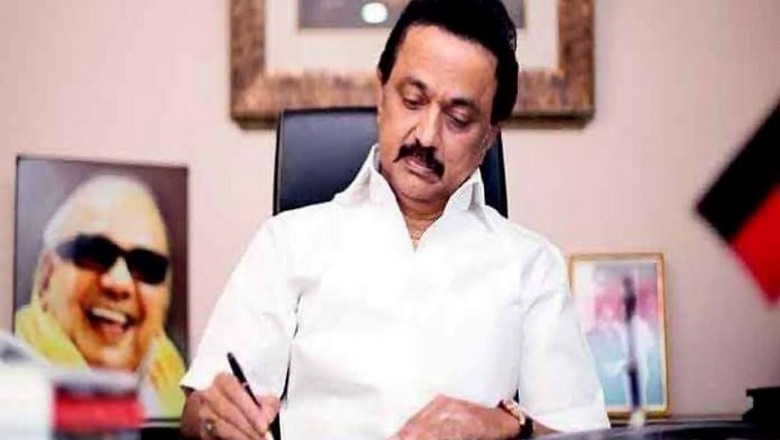
views
With due credit to Enid Blyton now in the process of being cancelled from public memory, a Famous Five has descended on Tamil Nadu to help the southern state government manage its economy. According to Tamil Nadu Governor, Banwarilal Purohit, this institution called the Economic Advisory Council will include former Reserve Bank of India governor Raghuram Rajan, Nobel laureate Esther Duflo, former Chief Economic Adviser Arvind Subramanian, development economist Jean Dreze, and former Union Finance Secretary S. Narayan.
This Famous Five is a heady mix of economic heavyweights from academia and the policy space, each a domain expert, each carrying a wealth of peer-reviewed knowledge or action-oriented policy experience. The Tamil Nadu government must work closely with them to pull out the best they offer. But given their ideological leaning, political inclination and the proven proclivity of some of these Famous Five to use their public office to fight ideological battles, the government needs to be very careful while working with them and take their advice with adequate caution. On the other side, the Council must not deteriorate into an alternative economic power centre, holding forth on high stakes issues without any skin in the game other than résumé building. Being famous is also an entitlement, and as some of them have proved, entitlements carry arrogance.
But the bigger story is not about these individuals. It is not even about the state of Tamil Nadu. It is about the institution. The Tamil Nadu Economic Advisory Council is a much-needed organisation that bridges economic expertise with policy action and political goals. In a line, this is the expression of intellectual centrifugal forces functioning within the unique aspirations of subnational entities and the confines of a centripetal force operating from New Delhi. These two forces need to bring synergies of economic equilibrium that, while powering the state strengthen the Union; the part supporting the whole; the whole the part. The creation of the Council is excellent news and a great start for three reasons.
First, conceptual: It allows economic superstructures to express themselves on a wide range of issues that go beyond the economy. All other distractions aside, the economy is the base that powers everything else, particularly welfare schemes—no wealth, no welfare. But the model of leaning on the Union government expertise for all matters economic, while dancing to the tune of freebee politics at the time of elections, will at some point break down. It is imperative for state governments to stand on their own feet, and deepen and widen their economic stride. Almost all sectors, from agriculture to manufacturing, sensitive domains from land to health, and on-ground regulation from technology to resources, reside with states. Infusing efficiencies into them is the responsibility of state governments and the Council in Tamil Nadu is a good start.
Second, structural: It opens the revolving door of experts within states. The Union government routinely invites experts and resides them within the North Block—the office of the Chief Economic Adviser, the Governor of the Reserve Bank of India, and the chairmen of regulatory bodies around securities, insurance and pensions have had outsiders coming in. During the decade when the United Progressive Alliance governed, the institution of National Advisory Council was set up to advise the Prime Minister, largely on matters of welfare. Encouraging the best minds in varied domains to infuse knowledge and experience into governance is a good step. Here, the state governments will need to be careful about two things. One, some experts come with the swagger of attitude and the bluster of ‘free speech’ without the related responsibilities, accountabilities or constraints. And two, they are often unable to negotiate entrenched bureaucracies. The government needs to handhold them on the latter and warn them on the former, possibly with non-disclosure agreements.
And third, geographical: The proliferation of global talent outside New Delhi’s North Block. Thus far, all talent has been absorbed by and attracted to Raisina Hill. State governments have played second fiddle and, at best, competed against other states for investments or markets—not for talent. Now that the states themselves are gaining scale and complexity, this expertise needs to trickle down. The Tamil Nadu Economic Advisor Council is a step in that direction. At worse, the Council will challenge the status quo and question extant policies and structures. At best, it could offer an argument for high growth or, as in this case, push for extreme welfare that leads to high inflation, hurting the poor. The truth and final execution will lie somewhere in between, depending on the receptivity and proclivity of the state government to heed or ignore their advice.
As the Indian economy grew from US $1 trillion to $3 trillion, think tanks have proliferated. As it now heads towards US $10 trillion, the number of think tanks will rise. Most will be private, some within the government. But the major leaning and the widest location will be in the states, where their expertise will be utilised to address specific problems, from managing poverty to delivering prosperity. Putting together district-specific skills and needs, for instance. If a team is put together, a third could focus on the top three districts; another third in the poorest three; and the rest could explore the middle.
Within states, there are six that have an economy of more than Rs 10,00,000 crore. Economic growth in these states will drive the national GDP to US $10 trillion. For that to happen, each of these six states will have to aspire to become an Indonesia, i.e., attain a state net domestic product (NDP) of US $1 trillion. Tamil Nadu, at the No. 2 spot with a current state NDP of US $224 billion, will need to grow at a nominal rate of 16.1 per cent to touch US $1 trillion. The other states are Maharashtra (NSDP: US $335 billion, growth rate to US $1 trillion: 11.5 per cent); Uttar Pradesh (US $202 billion, 17.3 per cent); Karnataka (US $199 billion, 17.5 percent); Gujarat (US $198 billion, 17.6 per cent); and West Bengal (US $156 billion, 20.5 percent).
None of these states can become a US $1 trillion economy by extrapolating the policies of the past. State governments will need new ideas, implant new efficiencies and express them through new institutions in order to get there. Tamil Nadu’s Economic Advisory Council is one of those steps. Chief Minister M.K. Stalin and Finance Minister P.T.R Palanivel Thiagarajan must ensure they pull out the best ideas from this Council of Famous Five and express them through economic governance tools. Other states must follow the Tamil Nadu model. And the Union government must pull out learnings from this rising aggregate.
This article was first published on ORF.
Read all the Latest News, Breaking News and Coronavirus News here.




















Comments
0 comment